Those of us who are fans of electronic surplus stores (some might say "cursed") -- those Lost Ark Warehouse-like institutions filled to the rafters with all manner of technical detritus that somehow avoided the landfill, were recently saddened to hear that Weird Stuff Warehouse, a Silicon Valley institution for the last 32 years, had closed for good.
If you've never visited Weird Stuff Warehouse (or one of its brethren), imagine a sprawling metal building in an industrial park, filled with room after room and rack after rack of... everything. It's almost pointless trying to describe the range of hardware (and sometimes software) that you'll run into in a place like this. Stuff that was state-of-the-art five or ten or twenty (or more) years ago now being sold for pennies on the dollar, with the more impressive items (remember that half-sphere Mac? The TRS-80? The Juicero?) occasionally set out in museum-like displays.
This is the sort of place that you'll either love or hate. If you have a bent for making, if you appreciate the art of engineering, if you're a technology nostalgia buff, or are ecologically-minded and appreciate that this hardware might still serve a purpose, you'll probably wander the aisles with a dumb smile on your face. If, on the other hand, you eschew clutter, dirt, and especially "trash," this may be your worst nightmare. I've often wondered if any first dates took place at Weird Stuff Warehouse - one would find out very quickly whether there was any potential for a relationship or not.
Similar institutions are located around the country (and the world), their names spread in forums and by word of mouth. I'm sure I'm not the only one who makes pilgrimages whenever travel brings me into one's vicinity (usually followed by a hasty trip to a UPS Store, if the bomb-like tangle of wires I bought wouldn't make it through security). Their names are legendary: HSC Electronic Supply, also in Silicon Valley; OEM Surplus in Colorado Springs; Norton Sales in North Hollywood, unusual for its collection of not-for-sale aerospace parts that they rent out as movie props; Skycraft Parts & Surplus in Orlando, and more that I'm sure you'll tell me about in the comments.
But unfortunately, and perhaps inevitably, these stores are disappearing. In addition to Weird Stuff closing in April, we lost our beloved JB Saunders here in Boulder a couple of years ago, and the legendary four-acre Black Hole in Los Alamos closed in 2012. I'm sure many of you have similar stories. Every time I visit one, I ask them how they're doing. The answer is usually a resigned shrug: "we're doing our best."
One does not start, buy, or even work at such a business for the big bucks. One must have a deep and somewhat quixotic dedication to keeping nominally-functional stuff out of the landfill, and getting it into like-minded arms. Seventy-two-year-old Chuck Schuetz started Weird Stuff Warehouse because he felt that it was "a crime" that so much brand-new (and yet somehow "obsolete") Silicon Valley hardware was ending up in landfills.
These businesses are very hard to keep running. In fact, despite the closures, it's probably more impressive that so many are still in operation. Right from the start, the real-estate footprint is significant; often located in high-tech neighborhoods where the market is booming, putting pressure on building owners to sell. This was the fate of Weird Stuff Warehouse: Google purchased the entire area for a new campus.
Stocking electronic components is also tough. There are literally millions of actively-produced electronic parts, and many more obsoletes. It's difficult for a brick-and-mortar store to keep more than a few thousand SKUs in stock, and very expensive to keep parts on hand (think every resistor value) that may never get sold. The internet has also revolutionized parts buying - it's hard to justify the time spent poking through parts cabinets, often to find the value you need missing or out of stock, when DigiKey and its competitors let you instantly search through tens of millions of parts that they can get to you the next day if desired.
Stocking surplus equipment is even tougher. One can buy truckloads of old electronics at scrap-metal prices (that's usually how it comes). But cleaning*, testing*, cataloging*, (* optional steps), and displaying it, all in the hope that someone who needs exactly that item will somehow find and buy it, is a tenuous business model at best. Every item on every shelf is a gamble that someone, someday will want it, bet against the space it occupies, costing you money, forever. If you eventually have to scrap it anyway, you'll be faced with e-waste fees that you assumed when you purchased the item. It's not easy.
And as Sturgeon's Law would suggest, a lot of what's on these shelves is junk. Looking through stacks of formerly state-of-the-art equipment, it's tempting to think that an old router or industrial PC might still be of some use. But Moore's Law is an remarkable thing, and the pain you'll subject yourself to trying to make use of a 10Mbps router or 300MHz CPU makes this a difficult proposition at best. Unless the hardware in question is of historical value (I'm pretty lose with that definition myself) and therefore a labor of love, it's ironically almost always cheaper in every way to buy something newer and faster.
But there are treasures here that transcend functionality. Beautiful dial meters from the analog age. Gorgeous Silicon Graphics and NeXT machines that were designed by artists. Civil Defense Geiger counters, overbuilt to survive the apocalypse so they still work great, if you can find the weird batteries they run on. And my favorite - old HP and Tek test equipment, thoughtfully designed for easy servicing, unlike almost everything today.
Not to mention things that were prohibitively expensive when they were new, but offer tantalizing possibilities now: hydraulic cylinders, gigantic capacitors, GHz satellite dishes... Warning: you may get ideas for irrational projects while wandering these aisles. And if you accidentally speak those thoughts out loud ("human-carrying Strandbeest!"), you can be sure that everyone nearby will smile and nod.
So is there hope for these lost-cause monuments to tech boom and bust, full of things few people love and fewer really need? Or are they destined to close one by one as their property value increases beyond the decreasing demand for what lies within?
For specific needs, the internet has already won. Once you've gotten used to the convenience of DigiKey or the price of, well, Monoprice, it's hard to imagine going back to endless digging through bins, followed by rethinking your project to accommodate what you actually find.
But for sheer experience, nothing beats wandering the aisles of one of these places, and for that they deserve our support. Frequent them if you live nearby, and include them in your travel plans if you don't. Buy something while you're there; they'll thank you for it (and mean it). You probably won't find what you need. But I can promise you you'll find something that you love.
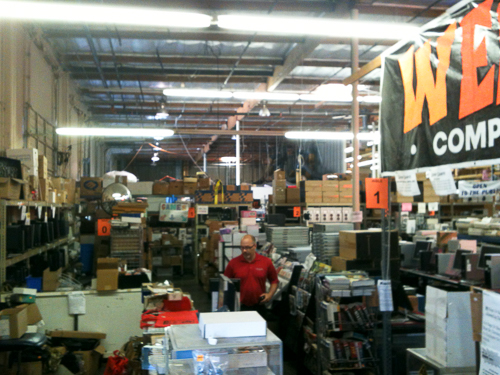
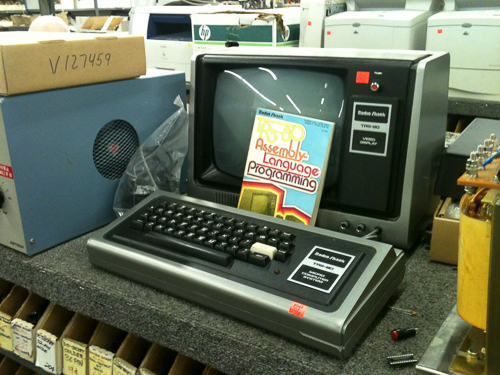

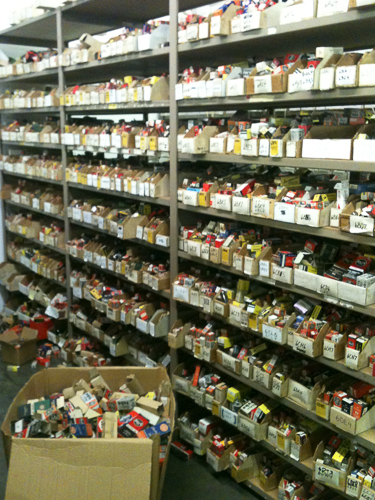
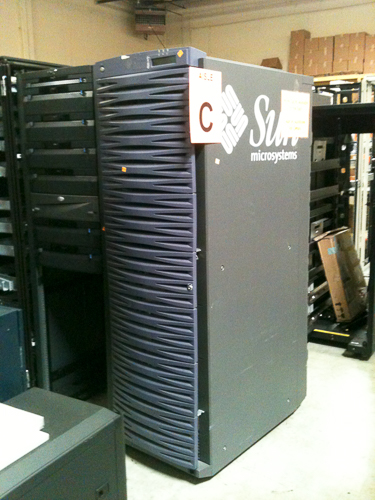
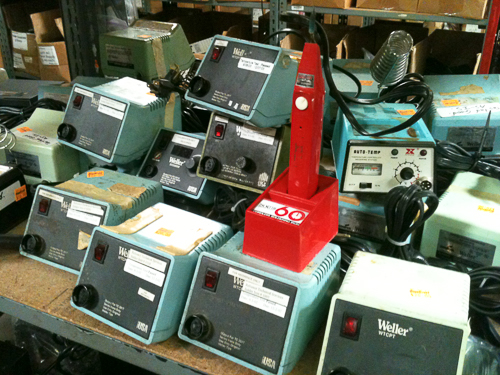
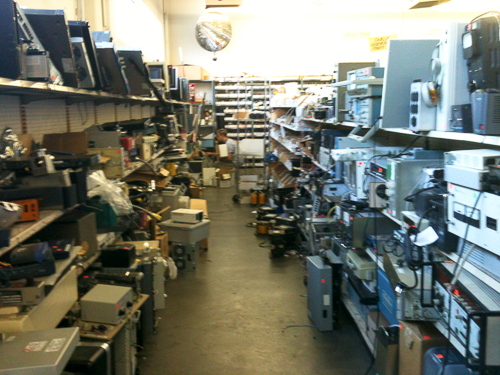
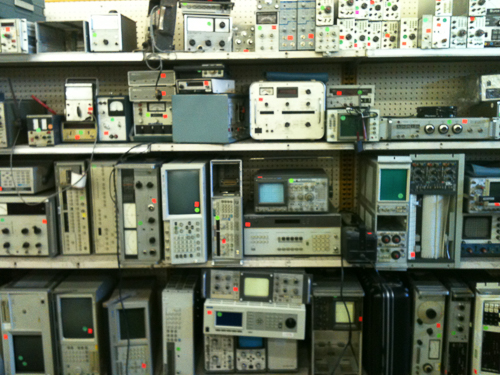
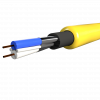







They can and they will be saved, one shop at a time! Fantastic article, great to see others feel the same way I do. As a small business owner, I struggle with everything you talked about. People need to know there's still brick and mortar places out there that you can buy electronic parts. My grandfather started the business in 1922 and I try to keep a little of everything from all eras just so people can appreciate how far we've really come. It's like a museum and I literally get told every day, it's nice to see your still around. That's what makes it all worth it, customer satisfaction!
IBeatRadioShack
Please let us know where your shop is; I and I'm sure many of our readers would love to stop by!
Here's a nice write-up that Google kicked up http://wcfcourier.com/article_d4a34cfa-798c-5b8d-93a4-a19273e22947.html
Currently located at 807 East 18th Street, Cedar Falls, Iowa 50613. Will be closed July 20 and reopening July 30 at our new location, details coming soon!
Our surplus stores in the Boston area are all victims of changing times, diminishing availability of things to sell (partly because of the decline of electronics manufacturing in the area), and rising real estate values. Eli Heffron and Sons in Cambridge and Meshna in Lynn are among the late and lamented. Electronic Surplus Services in Manchester NH, an hour's drive away, is still surviving: http://www.esssurplus.com/
I realize that it's a bit off on a tangent for the original article, but for the lovers of "glow-in-the-dark" electronics, I happened to realize that nobody had mentioned Antique Radio Supply that specializes in "new old-stock" (back in the days when TV repair shops where closing their doors, these folks snatched up the stocks of replacement parts).
To be sure I got the URL right (when I need something, I usually just drive over), I Google'd "antique radio supply" and was amazed at what came up!
I too shop RaElco in Salt Lake, and have since 1965 when it was known as Manwill's Lafayette. It was located about a half mile away from it's present location and sold new and used amateur radio gear and parts. Another store was Salt Lake Instrument. Stocked with WWII surplus electronics, owner Bill Davis survived by repairing test instruments, salvaging parts and tubes, and scrapping whatever had no other value. JT Airparts where several local hams purchased surplussed $5K F-16 X-band preamps for ~$5-$10 each, used to sell general mil surplus, then went strictly aircraft. As for WWII surplus causing problems for postwar manufacturing, it also made it possible for returning veterans to start their own aviation, electronic, construction, machining, marine, and farming companies. Yes, this meant more competition for the established companies, but it also lead to the technology we have today. Try searching for your state surplus property auctions, college and university property redistribution centers, and auction companies. Buy a pallet of goodies, then sell or advertise online. If these sources don't evolve, they become problems to the "authorities" who will demand used items be scrapped, rather than recycled. Rant Off.
There is a place here in Salt Lake City named RA-ELCO (www.ra-elco.com) that is a tinkerer’s candy store. It’s not a huge yawning warehouse, but a cozy small building tucked away in an industrial section of Salt Lake. They have been in business since 1972 ( about the time I graduated from high school and really became interested in electronics ). They have row after row of odds and ends, some salvaged some new. They stock a reasonable number of ECG (generic replacement semiconductors and the like) parts. They even have a room devoted to tubes ( for those of us “seasoned” enough to remember what they were ). The counter is staffed by knowledgeable folks who are always willing to help noobs or to tell you what row a given part might be found on. RA-ELCO is a real gem.
Further south in Provo, there was a place that I spent a lot of time. I think the name was Central Utah Electronics. Doubt if it's still there. I haven't been that way in a long time. Was across the street from a cemetery.
A few years ago I watched one major local (Austin, TX) supplier of electronics reinvent itself as an "IT and Networking" store, and almost all their small parts disappeared. One by one the Radio Shack stores went from stocking components you'd actually use to only selling cell phones to being out of business, so they were no longer an outlet for much of anything.
Back in the wake of the dot-bomb bust almost twenty years ago, we had a store called "MC Howard Electronics" staffed by a guy named Mel, his wife (who was also a heavy eBay trader), and a guy named Bob, who worked mostly behind the counter up front. And they went around to defunct businesses buying up their inventories. A small shop of theirs in a little industrial park was full to overflowing with stuff you could use.
The problem was that "tech investors" here became enamored of the "software apps company," and nobody wanted to take the risk of investing in anything that carried inventory -- finished, WIP, or otherwise. And a lot of the hardware and embedded design space withered on the vine. When the recession hit in 2007-2008, a lot of the old-timers were near retirement age and got out. Schools were no longer teaching what little embedded design they ever did, and a market segment for components locally went away. I'm now running one of the last embedded design businesses in this town, and we stay in business by doing all the work that others outsource.
I do miss MC Howard Electronics. To step into the place was to step into the Jawa Sandcrawler from the original 1977 Star Wars movie. And I miss Mel in his blue coveralls, cigarette always in hand, ready to dicker over whatever he'd bought at bankruptcy auction or pulled out of somebody's dumpster.
When MC Howard Electronics went away, it did it with zero notice. One day it was there, and one day it was full of workmen replacing drywall and repainting the empty space for the next tenant.
And I've always wondered, "Where did that gigantic pile of stuff end up...?"
Yes, and I remember fondly my trips to Trans Am Electronics on Canal Street in NYC in the early/mid 1980s. Not only all sorts of surplus electronics gear and parts, but also a hangout for many of the area hobbyists. The fellow who owned the place -- can't recall his name, unfortunately -- was free with advice and project ideas.
I logged in specifically to reminisce about Ax-Man on University Avenue in the Twin Cities. When I lived there, I worked at a museum with electronic exhibits. If you went there looking for a specific part (I remember a particularly fraught instance where I REALLY needed one panel mount 10K potentiometer on short notice) you were screwed. On the other hand, if you went there in a state of complete zen, with your mind empty, you would go home with tens of dollars worth of amazing stuff (I think I can see at least 3 Ax-Man finds from my position on my couch, including a coffee cup with the number 2000 in raised lettering on the surface and a poster commemorating International Space Year 1992). I wish that I had scooped up more of their decommissioned Northwest Airlines tableware when I had the chance. I still keep a magnet on my fridge that says "WE USE ONLY GENUINE AX-MAN PARTS"
Great post, Mike! Mary and I went to WSW in august last year and had a blast! It lead to me writing about figuring out what I had dug out of the shelves there. I am heartbroken to hear they have closed. Fistells in Denver also comes to mind as I raed this and the place on 25th and Federal that I can't even remember the name of. My hat is off to the rare breed that runs these places. https://www.sparkfun.com/news/2494
I miss Saunder's as much as the next EE but their crummy customer service contributed to their demise too. Staff would turn the lights off at 5:00 PM sharp (happened to me numerous times while shopping for senior project parts) and demand you purchase what you had or leave. If you live in or near Fort Collins CO, visit Mountain States Electronics :)
You mentioned the "Black Hole" in Los Alamos. I remember going to Zia Surplus in the early 70s, and suspect that it evolved into the "Black Hole". It was one of the few surplus stores that had another mandatory step in preparing their stuff: make sure it wasn't radioactive.
I recall a couple of visits to Weird Stuff in the mid-1980s. Once I'd moved out of Silicon Valley, though, I had the problem of getting any purchases home, and this was before the days of the UPS store. In a way, I'm a bit surprised that Google didn't try to accommodate the "techie community" and work to help WS get to other quarters.
There have been a couple of this ilk that I've said "good riddance" to - like Poly Paks back in the late 60s, and one in Phoenix whose proprietors ended up with the attentions of the local District Attorney's office.
One of the things I've noticed, too, over the past 30 or so years is that there's been less and less stuff being offered at Hamfests. In the mid 90s I'd seen a bunch of old 5MHz 'scopes being offered at bargain prices, and finally came up with a use for them (I was going to use them in lieu of bricks in a "boards and bricks" bookshelf -- with some tinkering would make an interesting conversation piece if I could get them to "light up"), but the next Hamfest the vendor showed up at he'd tossed them. Oh well...
Thanks so much for writing about this. I wish these places had more support, maybe some sort of funding as cultural institutions. I've been to the WeirdStuff warehouse and their previous warehouse many times, and am very sad to see it go. Experiences there are like no other, never what you expect, and always interesting. Definitely worth a trip with the kids.
We really need to support surplus places like this. They inspire creative thinking, and I never walk into one without coming out with several ideas for new projects. I buy things to build with, and I also buy things just to take them apart and see how they work, or honestly just figure out what they are. This sense of adventure is key to the experience. TAKE YOUR KIDS TO PLACES LIKE THIS!
BTW, Axman Surplus in Minneapolis is one of the must-see things in that area.
They have no parking lot or AC and only south-facing windows. Summer is hot, in case people that don't live in Minnesota think it's not! The only way I can think of that works is for me to be dropped off at the store and the wife to take our son to the CVS on the same block.
i would love an electronic surplus store like this in South Africa
Thanks for this awesome post Mike. It reminded me of many good memories searching through boxes at Saunders for the perfect potentiometer, and checking out all of the enclosure options - oh so inspirational. It was pretty satisfying when you found the reel of the part you needed - score!! Sad to see Saunders close.
Sometimes when I walk through SparkFun's inventory I will take a closer look at some switch or button, and then find myself 5 minutes later gazing into other bins nearby with completely different parts. Then 10 minutes pass and I find myself wondering "What was I doing here again?" Something very special about seeing electronic parts in front of you.
I give tours most Fridays, and I see this attraction happen to a lot of our guests. They're always curious to look inside the inventory boxes. And the work-in-progress shelves are usually a hit. It's fun to see thousands of boards - all ready for programming and testing. Unfortunately, we can't linger too much near the inventory or production, and we need to get on with the tour! This gives me an idea, we need to host the "grab as much as you can in 2 minutes" style gameshow that Toys-r-us used to have... Let's get our PR people on that. I'd probably go for the bins of RFM69s and Pro minis.
In Lima, Ohio there is Fair Radio (https://fairradio.com/). It's one of the few places heavy into old military electronics, some possibly predating WWII. Walk in the door and even the the smell of old equipment smacks you in the face. Housed in a former lumber yard - with multiple buildings - they have TONS of old military electronics, test equipment, military manuals, and parts and modules. Need a vibrator for that antique car radio? Got it! Some newer stuff, too. Just last week I did a quick scan of the main building and back room (bring a flashlight), took me nearly two hours. Found two nice audio transformers and some other useful parts, almost feel guilty paying only $12 for the lot. FYI: They have many models of dynamotors!
Hey thegrendel, that would be Lou Kates (whose wife was Madylin Kates, the "concierge" from the original The Producers movie). It was managed by a young guy who's name escapes me at the moment. Lou was also a partne,r at one point, at Richman Electronics, a bigger store that was across Canal St.
Down the block, then later across the street, was RAMCO, owned by Al Forman and Mel Levinson. I worked there for many years, starting in the early 70s, through High School and maybe a bit after.
Met all sorts of interesting folks at these places, including Bernard Goetz, the "original" subway vigilante. Few know that he was a talented engineer, and, I believe, had a business calibrating precision test equipment.
Canal St. was full of surplus stores, hardware stores and so much more. All that remains is Canal Rubber and a reconstituted Canal Plastics. There was one surplus store (though not really electronics or parts focused, mostly just junk) that finally closed last year.
Sadly, I still live on the street, it's a ghost of its former self, and most of the retail stores on both sides are vacant, victims of high-rents and area neglect, though the street divides 2 of the most "hip" areas of the city; Soho and Tribeca. Most of the "knock-off" peddlers are gone and the street mostly acts as a conduit for traffic, vehicular and pedestrian.
I remember an excellent surplus electronics warehouse in Dayton Ohio. The warehouse was about 6 stories tall with each floor packed with electronic and mechanical hardware. I spent at least 6 hours there once. It was leftovers from Wright Pat AFB. The other place I remember was a small surplus store in Melborne Fl. right next to the Space Center. Lots of really cool gear there. Sadley it's been gone for at least a decade now. Thanks for the memories.
I think you're thinking of Mendlesons. Haven't been back to Dayton (or the Hamvention) in a while but the description you're giving sounds a lot like them. :-)
Here is one in Southern California (Orange County): Alltech Electronics
https://www.yelp.com/biz/alltech-electronics-santa-ana
Here in/near Chicago, we have American Science & Surplus. https://www.sciplus.com/
Al Lasher's Electronics in Berkeley, CA is an institution. A small shop, they pack an amazing amount new and surplus stuff into it. They survive partly because I think they are now (with the demise of Radio Shack) the only electronics store in this whole region, they are family run (and probably own the building), they know what they are talking about, and it doesn't hurt that a major university, UC Berkeley, is a few block a away. http://allashers.com/
In St. Louis Missouri there's Gateway Electronics. http://www.gatewaycatalog.com/
OMG, it's still there?? - I've always assumed it was long gone. We used to use our carefully rationed teenage fuel budget to drive out from Chesterfield to peruse the bins and racks in the late 70s. That and PTS (Precision Tuner Service IIRC) to have our TV tuners rebuilt.
Any PIP Boy 3000s hiding in there?
Damn!!! You guys made me miss our Radar Electronic in down town Seattle. Any EE student back in the 80's went there to buy parts for what ever project their Professor demanded the student to make for class. There are times I wish I knew what I was going to miss.
Around 1960 there were some "war surplus" stores in California. Vacuum tube gear, racks and test equipment picked up at government auction for pennies on the dollar. Some of this equipment was repurposed into Amateur Radio service. There still has to be warehouses full of more recent "surplus" in some of the low rent areas. Probably ebay has made it easier to sell the stuff.
My understanding is that unfortunately Congress [opposite of "progress"?] in their infinite whizDUMB changed the rules on government, especially military, surplus sales. They claimed (and there probably was some truth in the claims) that all those mountains of Jeeps, tents, messkits, and such after World War II had a "huge negative impact" on the manufacturers after the war. (I've heard stories about WW II surplus airplanes being purchased for the gasoline in the tanks -- though they might not be true.)